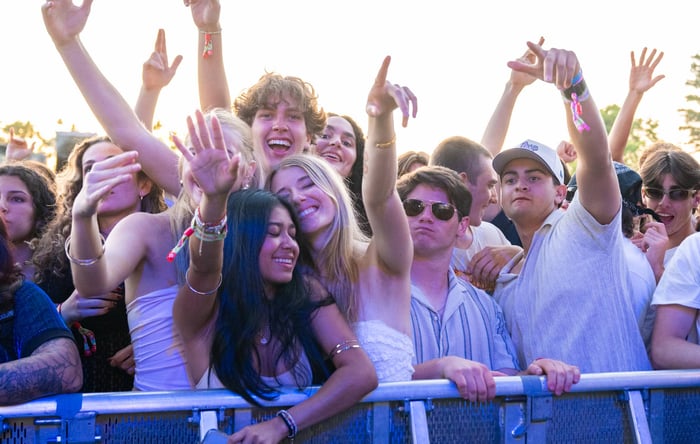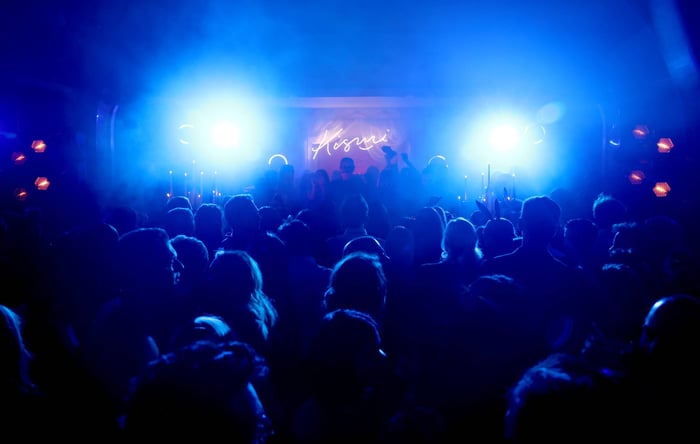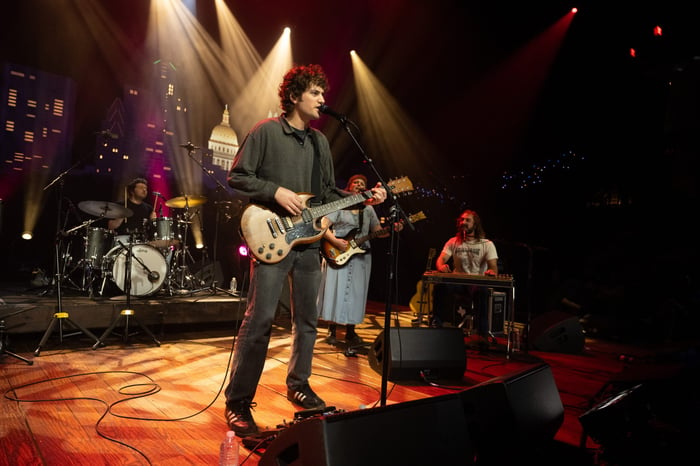
Living Wage for Creatives Could Boost UK Economy by £42 Million, Study Finds
Living Wage for Creatives Could Boost UK Economy by £42 Million, Study Finds
Living wage for creatives could inject £42 million into the UK economy, supporting fair pay and thriving arts communities.
How a Living Wage Could Revitalize the UK’s Creative Scene
Imagine a world where artists, musicians, and cultural workers are paid fairly—not just for their passion, but enough to cover the cost of living. A new study shows that implementing a living wage in the creative sector could add a whopping £42 million to the UK economy. That’s the kind of boost that could transform stages, studios, and galleries from struggling spaces into thriving hubs of culture.

The Living Wage Foundation’s Eye-Opening Analysis
The Living Wage Foundation’s recent research reveals some striking figures. Using data from the 2024 Office for National Statistics Annual Survey of Hours and Earnings and a model developed by Cardiff Business School, the report highlights that a living wage policy would lift pay for tens of thousands working in creative and cultural roles. This pay rise could funnel approximately £41.6 million back into the UK economy—a figure that’s music to any culture lover’s ears.
Right now, the UK’s living wage sits at £13.45 per hour (£14.80 in London). Shockingly, an estimated 25% of arts and entertainment jobs still pay below this threshold as of 2025. From museum café staff to theatre front-of-house teams, many dedicated creatives are earning less than they need to live comfortably.
“Everyone in the creative and cultural sector, from café staff in museums to studio cleaners and front-of-house teams in theatres, should earn enough to meet the cost of living.”
— Katherine Chapman, Executive Director, Living Wage Foundation
What This Means for the Creative Workforce
Katherine Chapman, the executive director of the Living Wage Foundation, urges the UK government to lead the way by ensuring public funding supports fair pay and good jobs in creative sectors. She also encourages regional leaders to fold the living wage into their creative industry plans, which could help revitalize arts communities across the country.
Meanwhile, Ireland’s recent introduction of a basic income scheme for creatives—starting in 2026—is already setting an example. Over 2,000 creative workers and musicians will be eligible to receive €325 a week, a move that’s helping to address the financial instability so often faced by artists. The scheme, trialed in 2022, successfully reduced the precarious nature of arts careers by stabilizing income.
The Stark Reality for UK Musicians and Creative Workers
The numbers tell a tough story. Earlier this year, the Musician’s Union revealed that nearly 50% of working musicians in the UK make less than £14,000 a year. That’s barely scraping by, especially in a city like London where living costs can be sky-high.
David Martin, CEO of the Featured Artists Coalition, noted the grim truth behind the headlines: many UK artists earn wages below minimum wage—even those signed to major record labels. It’s a reality that’s as frustrating as it is disheartening, and it reminds fans that the glamor of the stage often masks serious struggles behind the scenes.
Challenges Facing Grassroots Music and Live Venues
While vinyl sales are climbing and live music remains a favorite pastime, the grassroots music sector is fighting hard to survive. The year 2023 was disastrous, with 125 grassroots venues shutting down—the worst year on record. These venues have been the lifeblood of countless artists’ careers, and their loss is a cultural wound.
The Music Venue Trust (MVT) has warned that new premises taxes introduced in recent budgets threaten to push 350 grassroots venues to the brink, risking over 12,000 jobs and more than £250 million worth of economic activity. More than 75,000 live music events hang in the balance, underlining the urgent need for intervention.
One innovative solution gaining momentum is a proposed £1 ticket levy on all arena-sized shows, designed to funnel money back into grassroots music. This summer, London’s Royal Albert Hall became the first major venue to commit to this levy, and the UK Prime Minister has expressed his support, hoping to see the initiative grow.
Voices from the Industry: A Call for Action
In May, Joff Oddie of Wolf Alice stood alongside other industry leaders at a government hearing, pressing for more decisive action to save venues and nurture emerging artists. The urgency is clear: without support, the UK risks losing its unique cultural heartbeat.
Encouragingly, ticket contributions during UK tours—backed by bands like Pulp and Mumford & Sons—have already raised around £500,000 for grassroots venues. It’s a reminder that the industry and fans alike want to see the scene flourish.
Why a Living Wage Matters Beyond the Numbers
It’s tempting to reduce this to dollars and pounds, but a living wage for creatives means so much more. It’s about respect, sustainability, and valuing the arts as essential rather than optional. When artists and cultural workers can make a living, the whole ecosystem benefits—from audiences to local economies.
The UK’s creative sectors have always been a source of pride and identity, and supporting fair pay is a vital step toward securing their future.
Conclusion: Can Fair Pay Save the Arts?
It’s clear that a living wage for creatives isn’t just a nice-to-have—it’s a necessary investment in culture, community, and economy. How might the UK’s creative landscape change if artists, musicians, and cultural workers were paid what they truly deserve? Would we see a renaissance of grassroots venues and groundbreaking art?
The stage is set. Now, it’s time for the UK to tune up its commitment to the arts.
FAQ
- What is the current living wage in the UK for creatives?
The living wage is £13.45 per hour across the UK and £14.80 per hour in London. - How much could the UK economy benefit from paying creatives a living wage?
A living wage for creatives could boost the economy by approximately £42 million. - Are many creatives currently paid below a living wage?
Yes, about 25% of jobs in arts and entertainment pay less than the living wage. - What measures are being taken in other countries to support creatives?
Ireland is introducing a basic income scheme that pays creatives €325 weekly from 2026. - How is the grassroots music scene being supported in the UK?
Proposals like a £1 ticket levy from large arena shows aim to fund grassroots venues, plus donations from tours have raised significant funds.
If you’re passionate about music and art, why not bring that love into your home? Shop your favorite album cover posters at our store and celebrate the vibrant world of creativity every day. Visit Architeg Prints to explore the collection.
 | DISCOUNTGET 30% OFF*Use code on your next order:
|
* This post may contain affiliate links, meaning we earn a commission if you make a purchase through these links, at no additional cost to you.











